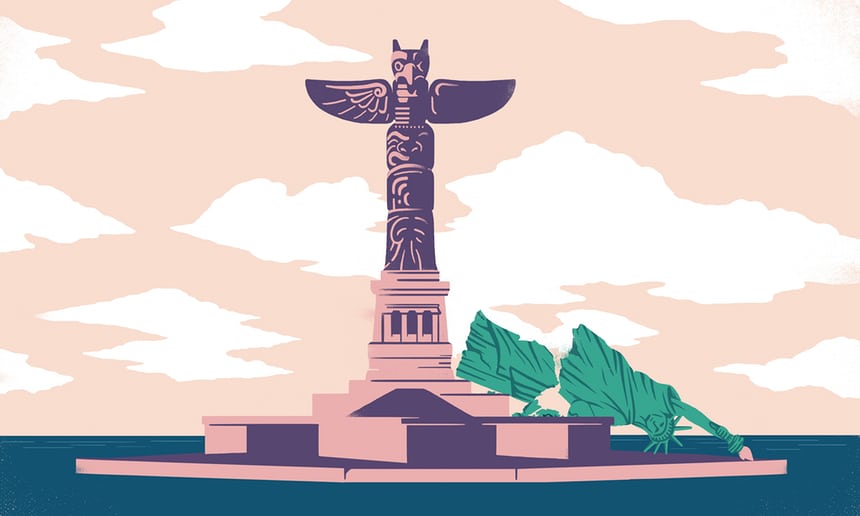This article by Timothy Snyder appeared in The Guardian, April 28th, 2018.
Historically, immigrants were given special rights to take Native land. If Trump says we are no longer a nation of immigrants, that has consequences
Brief commentary by Paul Cienfuegos, one of the founders and directors of Community Rights US (CRUS): We the People are The Sovereign People in these disUnited States of America. Which means We have the authority to rule. Constitutionally, government is required to serve Us. But what if that entire structure of our sovereignty is built on the genocide of the Peoples who were already here? And if the US government has a legally binding treaty relationship with the Native nations that exist within its boundaries (which it does), how is it possible that our government gives itself the authority to not recognize certain Native nations existing here for thousands of years, and thus refuses to acknowledge a sovereign to sovereign relationship with those tribes? If a Native nation is sovereign, it shouldn’t matter whether the US government acknowledges its existence or not – it’s still sovereign! And must be treated as such.
Does the federal government mean to cede the territory of the United States back to the Native Americans?
The US Citizenship and Immigration Services (USCIS) has altered its mission statement, removing the characterization of America as a “nation of immigrants” in order to emphasize the new goal of “securing the homeland”. Some critics made the point that most citizens are immigrants or their descendants, while others noted that most Americans believed that immigration should remain stable or increase.
Yet the problem with the change in language lies deeper. According to our own legal tradition, Americans claim sovereignty over the territory of the US as immigrants, precisely because the territories in question were someone else’s homeland: the Native Americans’. MORE…

